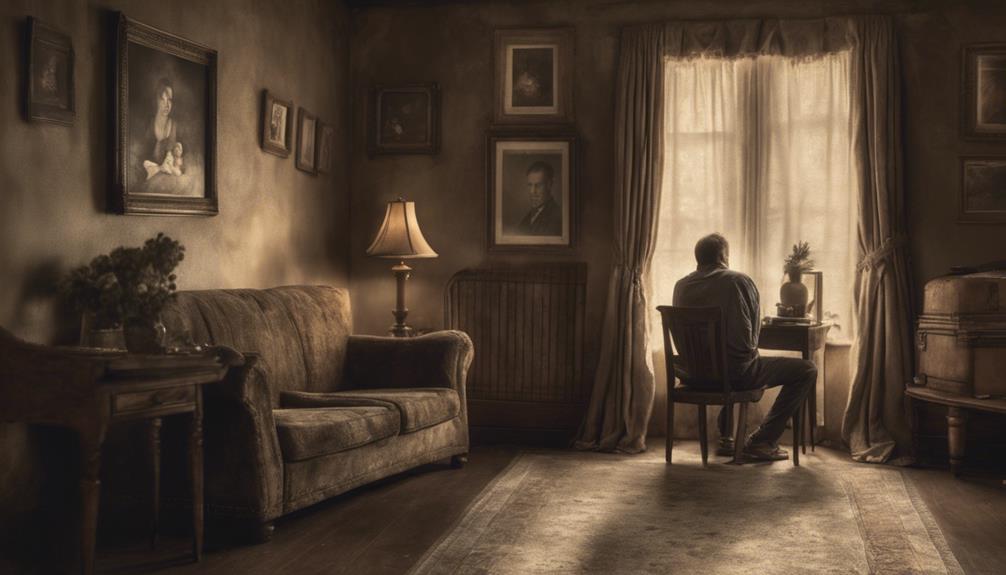Did you know that being referred to as a “lady” can evoke a spectrum of feelings, from feeling empowered to feeling offended? Knowing how to react effectively when someone addresses you as a “lady” is a crucial skill that demonstrates both your self-assurance and your understanding of boundaries. In this article, we will delve into the different connotations of being called a “lady,” interpret the tone and circumstances, and offer you tips on responding gracefully.
Key Takeaways:
- Being called “lady” can carry different meanings depending on the context, tone, and relationship between the speaker and the person being addressed.
- Understanding the term “lady” in its historical and social context can help you interpret its meaning.
- Interpreting the tone of voice is crucial in understanding whether being called “lady” is intended as respect, condescension, or sarcasm.
- The role of age and relationship status can influence the interpretation of being called “lady.”
- When responding to being called “lady,” there are different possible approaches, including polite acknowledgment, clarification, and positive or neutral responses.
Understanding the Term ‘Lady’
When exploring the term “lady,” it is crucial to delve into its historical and social contexts to gain a comprehensive understanding of its modern usage. In the past, the term was commonly used to refer to women of elevated social status or those regarded as classy and refined. These women were seen as epitomizing sophistication, elegance, and grace.
Over time, the meaning of “lady” has evolved to encompass a broader spectrum. Today, it encompasses any woman who embodies maturity, politeness, and respect, regardless of her social standing. Being called a lady acknowledges not only individual characteristics but also social status and the values associated with it.
This term has undergone significant transformation, and in modern usage, “lady” is predominantly regarded as a form of respect or endearment. It is often used to address women or girls specifically, but it can also be utilized more generally to address someone of unknown gender. Furthermore, it serves as a nickname or a term of endearment, showing affection and admiration for the person being addressed.
The term “lady” holds multifaceted implications, encompassing aspects of maturity, politeness, and social status. It provides a nuanced way of acknowledging and appreciating individuals who exemplify these qualities. In the modern context, being labeled a “lady” is a recognition of the values and virtues associated with the term.
| Historical Context | Social Context | Modern Usage |
|---|---|---|
|
– Refers to women of high social status – Symbolizes elegance and refinement – Reserved for women of class and sophistication |
– Embraces the qualities of maturity and politeness – Recognizes respect and admiration – Acknowledges social status and associated values |
– Term of respect and endearment – Addressing women and girls specifically – May be used in a more general way to address someone of unknown gender |
When a Guy Calls You Lady
When a guy calls you “lady,” it can have different meanings depending on the context. In a romantic context, it could be a sign of interest or flirtation. In a non-romantic context, such as a boss or friend, it is often a term of respect or formality. Interpreting the tone is important in understanding the meaning. It can be sarcastic, serious, polite, condescending, creepy, chivalrous, or gentlemanly. Considering the context, tone, and relationship with the person using the term can help determine the intent behind it.
Interpreting the Tone
The tone of voice used when someone calls you “lady” can provide insight into the meaning behind it. A sarcastic tone may be meant as humor or teasing, while a serious tone can indicate respect or formality. Polite tones are usually signs of respect or courtesy, while condescending tones can belittle or demean. Creepy tones may indicate unwanted attention, and chivalrous or gentlemanly tones often convey respect and admiration. Considering the tone, context, and nonverbal cues can help interpret the message behind the word “lady.”
Context and Relationship
The context in which the term “lady” is used is crucial in understanding its meaning. In a romantic context, it may suggest attraction or affection. However, in a non-romantic context, such as a workplace or friendship, it is more likely to signify respect or formality. The relationship between you and the person addressing you as “lady” also plays a role in interpreting the intent. If you have a close and friendly relationship, it might be a term of endearment, while in a professional setting, it may simply be a sign of politeness.
| Context | Possible Meanings |
|---|---|
| Romantic | Flirtation, interest, affection |
| Non-Romantic | Respect, formality, politeness |
| Professional | Respect, formality, politeness |
| Friendship | Term of endearment, respect |
Interpreting the meaning behind a guy calling you “lady” requires considering the context, tone, and relationship dynamics involved. By paying attention to these factors, you can better understand the intent and respond appropriately. Whether it’s a romantic or non-romantic situation, it’s important to respect your own boundaries and communicate clearly.

When a Girl Calls You Lady
When a girl calls you “lady,” it can have various meanings. It can be a sign of respect, acknowledging your maturity or achievements. It can also be used as a polite way to address someone. However, there are instances where it may be used sarcastically, implying that you are uptight or overly formal.
The context, tone, and facial expressions of the girl can provide clues to the intended meaning. If she says it with a genuine smile and a friendly tone, it’s likely a sign of respect or politeness. On the other hand, if she uses a mocking tone or rolls her eyes, it could be intended sarcastically.
Being called a lady by a girl is usually a positive thing, indicating that she sees you as someone deserving of respect. Embrace it as a compliment and an acknowledgement of your maturity and achievements.

“Being called a lady by a girl is usually a sign of respect or politeness.”
Interpreting the Tone
The tone of voice used when someone calls you “lady” can provide insight into the meaning behind it. A sarcastic tone may be meant as humor or teasing, while a serious tone can indicate respect or formality. Polite tones are usually signs of respect or courtesy, while condescending tones can belittle or demean. Creepy tones may indicate unwanted attention, and chivalrous or gentlemanly tones often convey respect and admiration. Considering the tone, context, and nonverbal cues can help interpret the message behind the word “lady.”
When someone addresses you as “lady,” it’s essential to pay attention to their tone of voice. The way they say it can provide valuable clues about their intentions and feelings towards you. Whether it’s said sarcastically, seriously, politely, condescendingly, creepily, or in a chivalrous and gentlemanly manner, the tone sets the stage for interpreting the meaning behind the word.
Sarcastic: A sarcastic tone can indicate that the person is using “lady” as a form of humor or teasing. It’s meant to be lighthearted and not to be taken seriously. However, it’s important to consider your relationship with the person and their intentions.
Serious: When someone calls you “lady” in a serious tone, it often reflects respect or formality. They may regard you with esteem and honor your presence. It’s a sign of recognition and may be used in professional or formal settings.
Polite: Polite tones usually accompany the term “lady” as a sign of respect and courtesy. It demonstrates the person’s desire to be polite and to treat you with dignity and kindness.
Condescending: A condescending tone when using the word “lady” can be demeaning or belittling. It may indicate that the person is trying to assert their superiority or undermine your self-worth. In such cases, it’s crucial to assert your boundaries and address the disrespectful behavior.
Creepy: A creepy tone can be unsettling when someone calls you “lady.” It may imply unwanted attention or make you feel uncomfortable. If you sense a creepy undertone, trust your instincts and take appropriate measures to ensure your safety.
Chivalrous or Gentlemanly: When someone calls you “lady” with a chivalrous or gentlemanly tone, it reflects their admiration and respect for you. It’s a courteous and polite gesture, often associated with traditional values of gallantry and respect towards women.
Understanding the tone used alongside the word “lady” is essential in interpreting its meaning accurately. Be mindful of the context, nonverbal cues, and your relationship with the person to gain a comprehensive understanding of their intent and feelings.

The Role of Age and Relationship Status
Age and relationship status play a significant role in interpreting the meaning of being called “lady.”. The way individuals perceive and respond to this term can be influenced by their age and whether they are in a romantic or platonic relationship. Understanding the context is essential in comprehending the intended message behind being referred to as a “lady.” It is crucial to communicate personal boundaries and feelings clearly to ensure respectful treatment from others.

When someone addresses you as a “lady,” your age can impact how you interpret the term. Older individuals might view it as a compliment, acknowledging their maturity and life experience. Younger individuals, on the other hand, may have a different perspective, potentially associating it with notions of being formal or old-fashioned. The role of age in the interpretation of this term highlights the importance of considering generational differences and individual perspectives.
Furthermore, the relationship status between the speaker and the person being addressed can also influence the meaning of being called “lady.” In a romantic context, it can be a term of endearment or a way to express admiration. However, in a platonic relationship or a professional setting, it is often used as a sign of respect or formality.
It is crucial to recognize that individuals may have different interpretations of being referred to as a “lady” based on their age and relationship status. Therefore, understanding the context and the nature of the relationship is vital in accurately interpreting the intent behind the term.
Possible Responses
When someone calls you “lady,” it’s essential to respond in a manner that aligns with your personal values and boundaries. Here are some possible approaches:
-
Polite acknowledgment: A gracious response is to acknowledge the term with a simple “thank you.”
-
Clarification: If you’re unsure of the intent behind the term, politely ask for clarification to gain a better understanding. For example, you can say, “I appreciate the use of the term ‘lady,’ but can you help me understand the context in which you’re using it?”
-
Positive response: Show appreciation and interest in being addressed as a lady. A response like “I’m flattered that you consider me a lady” can help foster a positive connection.
-
Neutral response: In situations where you’re unsure of the meaning or context, it’s acceptable to respond neutrally. You can reply with a neutral acknowledgment, such as a simple “okay” or “got it,” as you gather more information.
Remember to consider the situation and adjust your response accordingly.
Is Lady Considered A Compliment?
Whether being called “lady” is considered a compliment depends on the context, tone, and intent behind it. Sincerity in accepting compliments is important, as they are verbal gifts that should be acknowledged and appreciated. Avoid downplaying compliments, as it can devalue the giver’s opinion and indicate low self-esteem or lack of confidence. Accept compliments at face value and respond sincerely.
When someone calls you “lady,” it can be a term of respect, endearment, or politeness. It can also be used in a condescending or sexist way. Understanding the intent behind the term is key to interpreting it. If the person using the term genuinely means it as a compliment or a term of respect, it can be acknowledged graciously. Responding with a simple “thank you” or expressing gratitude can show sincerity and appreciation.
However, it’s essential to be mindful of the context and tone in which the term is used. If it feels derogatory or disrespectful, it’s important to address it with assertiveness and communicate your boundaries. Don’t hesitate to express how you feel and let the person know if their use of the term makes you uncomfortable.
In some cases, being called a lady can reflect qualities such as maturity, politeness, and social status. Embrace these qualities and respond with confidence. Accepting the term as a compliment can contribute to building self-esteem and empowerment. By accepting compliments graciously, you send a positive message about your self-worth and confidence.
“A compliment is something like a kiss through a veil.”
– Victor Hugo
Learning to accept compliments with sincerity is a valuable skill that can enhance your self-confidence and strengthen your relationships. Remember to respond genuinely and show gratitude for the kind words you receive. When someone calls you “lady” with respect and admiration, embrace it as a compliment and let it contribute to your sense of self-worth.

| Signs of a Compliment | Signs of Disrespect |
|---|---|
|
|
Conclusion
Responding graciously to compliments is essential in building self-esteem and fostering positive connections. When someone compliments us, it is an opportunity to express our gratitude and acknowledge the value of their words. By saying “thank you” sincerely and accepting compliments at face value, we show appreciation for the giver’s kindness and create a mutual sense of admiration.
Nonverbal cues also play a crucial role in reinforcing our gratitude. Maintaining eye contact and using open gestures can convey sincerity and warmth. These gestures not only reinforce the message of gratitude but also create a genuine and heartfelt connection between the giver and receiver.
It is important to respond to compliments in a positive manner and avoid downplaying them. Instead of dismissing or deflecting compliments, we can choose to accept them gracefully. By accepting compliments at face value, we not only build our own self-esteem but also validate the giver’s opinion. This positive exchange of energy contributes to a culture of confidence and appreciation.
Let us embrace the power of expressing gratitude and responding to compliments with grace. By doing so, we not only enhance our self-esteem but also foster positive interactions and build stronger relationships. Remember, a simple “thank you” goes a long way in making both parties feel valued and respected.
FAQ
How should I respond when someone calls me “lady”?
When someone calls you “lady,” consider the context, tone, and relationship. Respond in a way that aligns with your values and boundaries while considering social norms and expectations.
What is the meaning behind the term “lady”?
The term “lady” historically referred to women of high social status but has evolved to include any woman who embodies maturity, politeness, and respect.
What does it mean when a guy calls you “lady”?
The meaning of a guy calling you “lady” can vary depending on the context. In a romantic context, it could indicate interest or flirtation. In a non-romantic context, it’s often a term of respect or formality.
What does it mean when a girl calls you “lady”?
When a girl calls you “lady,” it can be a sign of respect, politeness, or even sarcasm. The context, tone, and facial expressions of the girl can provide clues to the intended meaning.
How can I interpret the tone when someone calls me “lady”?
The tone of voice used when someone calls you “lady” can convey various meanings. It can be sarcastic, serious, polite, condescending, or even creepy. Consider the tone, context, and nonverbal cues to understand the message behind the word.
Does age and relationship status influence the meaning of being called “lady”?
Yes, age and relationship status can play a role in interpreting the meaning behind being called “lady.” Older individuals may interpret it differently than younger ones, and relationship status can affect whether it’s seen as romantic or platonic.
What are some possible responses when someone calls me “lady”?
Possible responses include a polite acknowledgment or a simple “thank you.” Clarifying the intent behind the term can also help provide understanding. Ultimately, respond in a way that aligns with your values and boundaries.
Is being called “lady” considered a compliment?
Whether being called “lady” is considered a compliment depends on the context, tone, and intent behind it. Sincerely accepting compliments and responding positively can enhance mutual appreciation.
How should I respond to compliments and express gratitude?
Responding graciously to compliments is important for building self-esteem and fostering positive connections. Saying “thank you” sincerely, accepting compliments at face value, and expressing gratitude can enhance the mutual appreciation between the giver and receiver.









